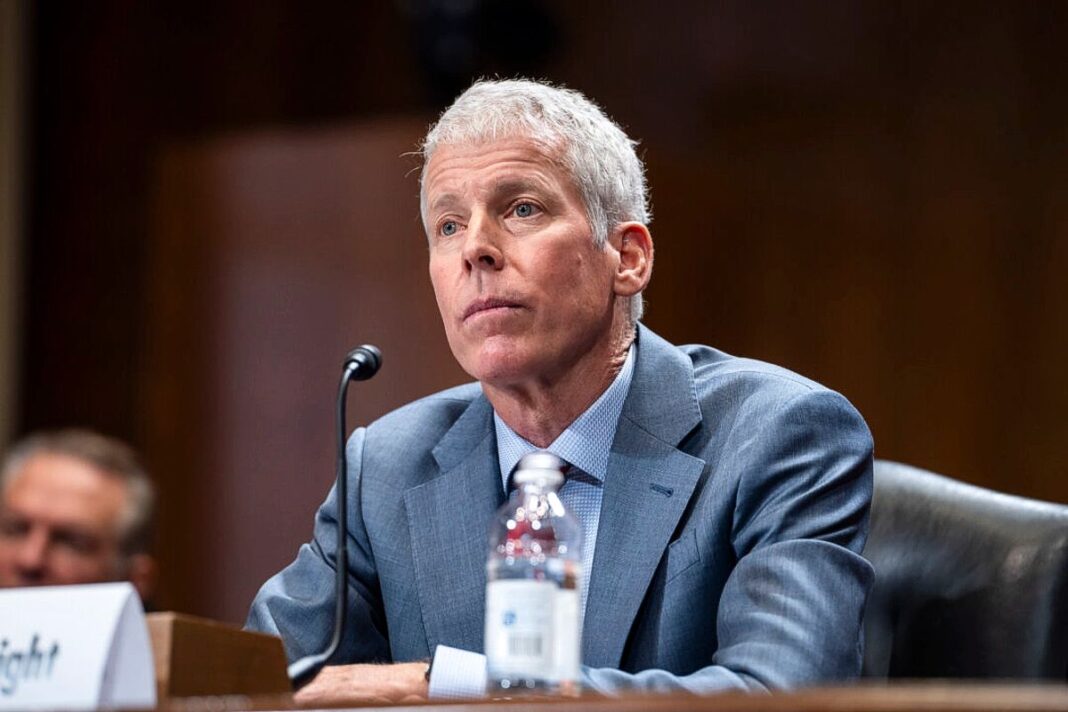The order scales back portions of an injunction from a federal judge that sought to block the dismantling of the Consumer Financial Protection Bureau.
An appeals court ruled on April 11 that the Trump administration could proceed with laying off workers at the Consumer Financial Protection Bureau but could not fully abolish the agency.
The order, issued on Friday evening from the D.C. Circuit Court of Appeals, is a partial win for President Donald Trump, who told reporters in February that the agency should be dismantled.
Congress created the Consumer Financial Protection Bureau following the 2008 financial crisis to police and regulate the financial sector. Republicans have long criticized the agency for being unaccountable and exceeding its legal authority.
In February, the National Treasury Employees Union sued Russ Vought, director of the Office of Management and Budget and acting director of the Consumer Financial Protection Bureau. The union accused the Trump administration of violating the nation’s separation of powers by moving to dismantle the agency without congressional approval.
Several other groups joined the suit in an amended complaint days later, accusing Trump of being “in defiance of Congress’s role in our constitutional system and separation of powers” in his attempt to “totally eliminate” the consumer protection agency.
On March 28, U.S. District Judge Amy Berman Jackson issued a preliminary injunction, blocking the administration from moving to close the bureau.
“If the defendants are not enjoined, they will eliminate the agency before the Court has the opportunity to decide whether the law permits them to do it, and … the harm will be irreparable,” Jackson wrote in her opinion.
Government lawyers argued that blocking the administration from working to wind down the Consumer Financial Protection Agency would violate the nation’s separation of powers.
“To override these principles and enjoin agency leadership from exercising procedural control over its own staff to ensure that staff is carrying out statutory obligations or otherwise exercising agency leadership’s policies would be an extraordinary violation of the separation of powers,” they said.
By Jacob Burg







